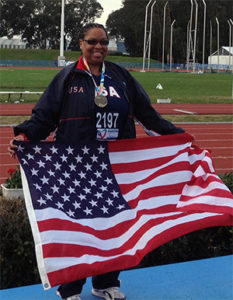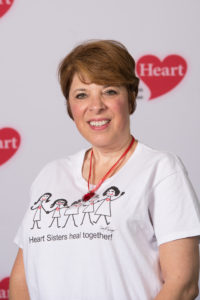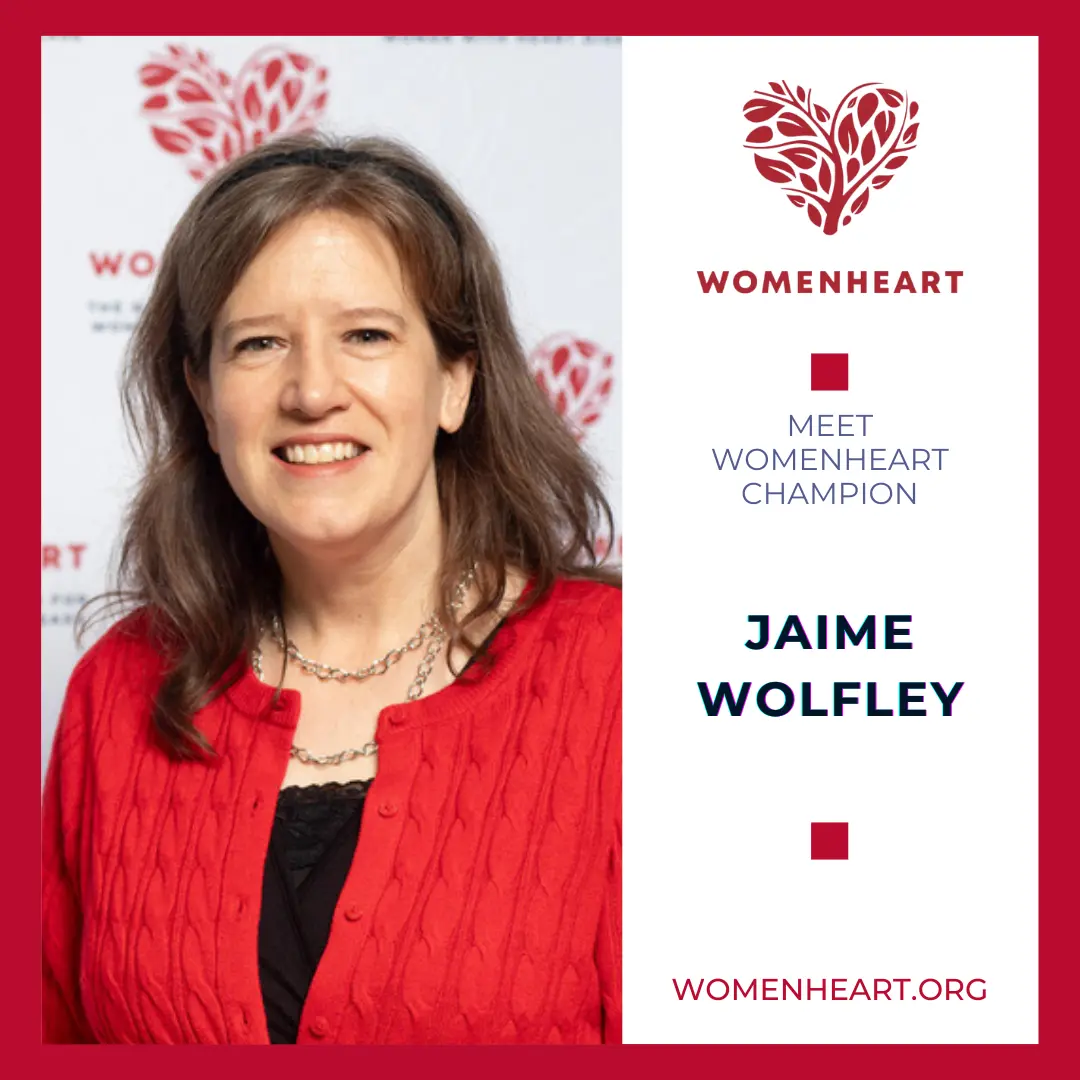In the immediate aftermath of a heart attack or a heart disease diagnose, most women focus on surviving. They want to understand what happened and figure out how to get well. Only once they have had time to process this life-changing event do they start focusing on how to live a “new normal.” For many, they start to learn what thriving looks like for their life. Read these words from real women about how they have thrived with heart disease.
Janet Dennis
 Seventeen years ago, a virus attacked my heart and put me in heart failure. I received a heart transplant in 2005 at the age of 50. That was the same year that I became a competitive swimmer and track and field athlete. Representing Team Philadelphia and Team USA at the US and World Transplant Games, I have set national records and earned 53 medals – 23 Gold, 15 Silver and 15 Bronze. I give my medals to my donor family, the family that gave me their loved one’s heart. I have thrived in physical activity, as a jumper, thrower and swimmer.
Seventeen years ago, a virus attacked my heart and put me in heart failure. I received a heart transplant in 2005 at the age of 50. That was the same year that I became a competitive swimmer and track and field athlete. Representing Team Philadelphia and Team USA at the US and World Transplant Games, I have set national records and earned 53 medals – 23 Gold, 15 Silver and 15 Bronze. I give my medals to my donor family, the family that gave me their loved one’s heart. I have thrived in physical activity, as a jumper, thrower and swimmer.
I also thrive by giving back. After twenty months of recovery, I was able to return to work. I am now a Chaplain on the hospital floor that I lived on for over six weeks while waiting for my new heart.
Eileen Dreczka
 Heart Failure. You FEEL it every day.
Heart Failure. You FEEL it every day.
Thriving for me is not letting my heart failure define me, but me to define it! I live everyday with reminders and symptoms of heart failure; it is always there. But that hasn’t stopped me.
I got married to a partner who was committed to this health fight with me, we do it together. I was baptized and confirmed because I need and believe in reinforcements. I joined together with strong women from WomenHeart who could help show me the way, because you cannot do this alone.
I also learned about my condition so that I could advocate for myself and understand what and how my heart failure would affect my life. I have learned I sometimes have to modify to thrive; I avoid saying I can’t do something but rather try to find another way.
Those days that “I don’t feel like it,” are not allowed. What is allowed is to push and move and try. If it turns out that I just can’t, then that’s a day to honor me for just that moment. But I make that call.
Eve Hauser
 My heart attack was more than eleven years ago. I credit my health today, not only to very caring and capable physicians, but to the life-saving nature of the medicine regime that I have been on for all these years.
My heart attack was more than eleven years ago. I credit my health today, not only to very caring and capable physicians, but to the life-saving nature of the medicine regime that I have been on for all these years.
Believing that you don’t fix what isn’t broken, we have only changed one of my medications in all these years, due to a recall. My cardiologist says I am too healthy for new innovations and that my current medical regimen is strong. I eat a balanced diet, get some – although not enough – exercise and try hard to lessen my stress levels. At 63, I’m about as healthy as any other individual my age.
No one would guess that I experienced a “widower maker” heart attack and lost 65% of my heart muscle in 2010 by looking at me or keeping up with me. I thrive.
Lori Wood
 The answer to the question, How Are You Thriving with Heart Disease? is actually a two-part one. The first part focuses on practical daily doing, and the second on long-term emotional survival. And often, two different people are asking the question.
The answer to the question, How Are You Thriving with Heart Disease? is actually a two-part one. The first part focuses on practical daily doing, and the second on long-term emotional survival. And often, two different people are asking the question.
- As in a newly diagnosed patient asking a fellow survivor, “Practically speaking, how are you doing this day-to-day?”
Thriving means taking some extremes and keeping the required balance. It takes an equal balance of trust and skepticism: Trust your doctor but always ask and advocate when something doesn’t seem right for you. They are fallible humans, too. It takes an equal balance of activity and rest: Walking every day, regardless of weather or mood, and sleeping a full night even if it requires supplemental naps to get enough hours. Thriving also takes an equal measure of rule-keeping and grace: Taking meds and following diet and fluid restrictions religiously, yet allowing yourself grace on down days.
- As in a friend asking, “Emotionally speaking, how are you still thriving years into this long-term condition?”
The only way to navigate this long-term condition is to feel some level of control over your every day. To decide to continue even on the bad days, to adjust daily expectations, to choose daily resilience, to look for new roles, and to embrace what each day might bring. These daily practices will allow you to survive and thrive years with an ongoing condition.
I have a grandbaby on the way, something I never thought possible when first diagnosed with end stage heart failure six years ago. I have a book coming out at the end of the year about my health detour, another impossible dream becoming reality. Without managing each day, one at a time, practically and emotionally, none of this would have been possible.




